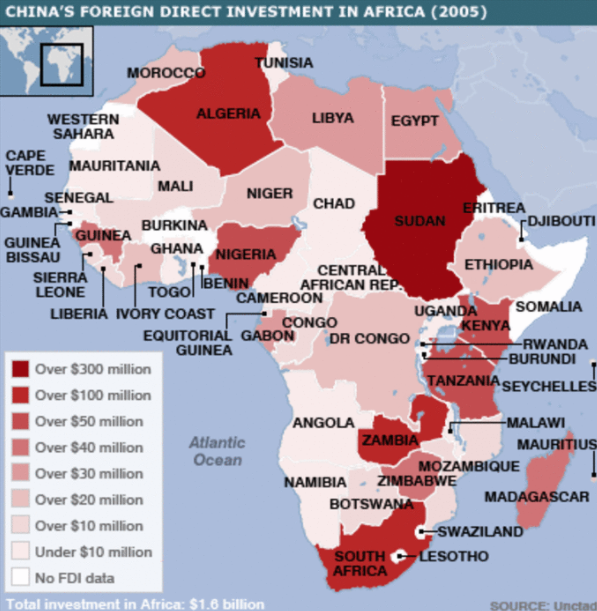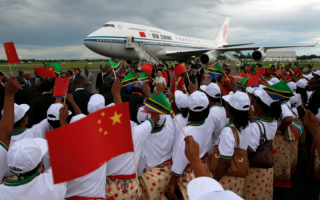Your own Web at China – Africa international loans?
For visionaries about China – Africa or Middle East – Africa Projects
Just good ideas, you don’t need to have money, if your idea is good, you can get the money you need to bring to reallity
You can create via our system your own Web inside our Web to dominate virtually the niche you chooseto make money together with us.
For example choose niches as Shanghai – West Africa APPs, Guangzhou – Nigeria big projects, Turkey – SA Industry 4.0, Beijing – East Africa Laser trade, EAU - North Africa international loans, etc
Any Project in mind for your African country about projects from China or from Middle East? Your ideas mean money in Sylodium.
Reasonable projects mainly based in Industry 4.0 (AI, IoT, IIoT, Robotics, Cybernetics, 3D Printing, New Materials, Big Data, etc)
contact us here info@sylodium.com
For companies trading from China to Africa
Our logical business system, allows you to segment your target markets to be seen, and dominate the bilateral trade niches you choose
Sylodium is the unique platform that represent the reality (reproducing your business) of international trade in Internet.
China – Sub-Saharan Africa Trade Relations: Still Unbalanced
New from Global Trade
Almost twenty years after the launch of the first Forum on China-Africa Cooperation, China-Africa relations remain unbalanced, according to Ruben Nizard, Coface economist and author of the study, “China-Africa: Will the Marriage of Convenience Last?”
Bilateral trade, which totaled $123 billion in 2016, has leaped over the past ten years driven by sub-Saharan African exports until 2014. The region now has a trade deficit with China. While 90 percent of exports to China are concentrated on natural resources, imports are more diversified and include manufactured goods, transport equipment, and machinery.

The slowdown in the Chinese economy and its reorientation towards private consumption are reflected in a weakening of demand for commodities from Africa. This will have inevitable consequences for exporters. According to Coface calculations, sub-Saharan Africa had a significantly higher export dependency ratio, on a 0-to-1 scale, than other emerging countries in 2016, at 0.24 compared to 0.16 for Southeast Asia and 0.19 for Russia, Brazil, and India. The differential is even greater with the European Union (0.07) and the United States (0.12).
Diversification, the Watchword for a Sustainable Win-Win Relationship
Despite this strong dependence on exports to China, the China-Africa relationship could turn into a win-win cooperation. Africa’s export basket is gradually diversifying, incorporating higher value-added processed raw materials, raw wood, and, to a lesser extent, agricultural products such as tobacco, citrus, seeds, and oleaginous fruit. This could increase local incomes and foster employment and technology transfers even if it makes commodity-rich countries vulnerable to international price fluctuations.
Diversification also includes FDI flows and loans from China. Chinese investments in Africa are no longer extractive in nature and now extend to services, processing industries, transportation, and utilities. Existing initiatives such as the One Belt, One Road should ultimately boost regional connectivity and reduce export costs.
Since FDI and financing levels are much lower than those of trade, African countries that are heavily dependent on China remain highly vulnerable to weakening demand or a further decline in the prices of raw materials. These countries would also be vulnerable to changes in China’s foreign policy because Chinese interests in the region are, first and foremost, based on a complex network of political and economic objectives.
China - Africa 4.0 - 27/01/2019
China - Africa 4.0 - 11/09/2018

